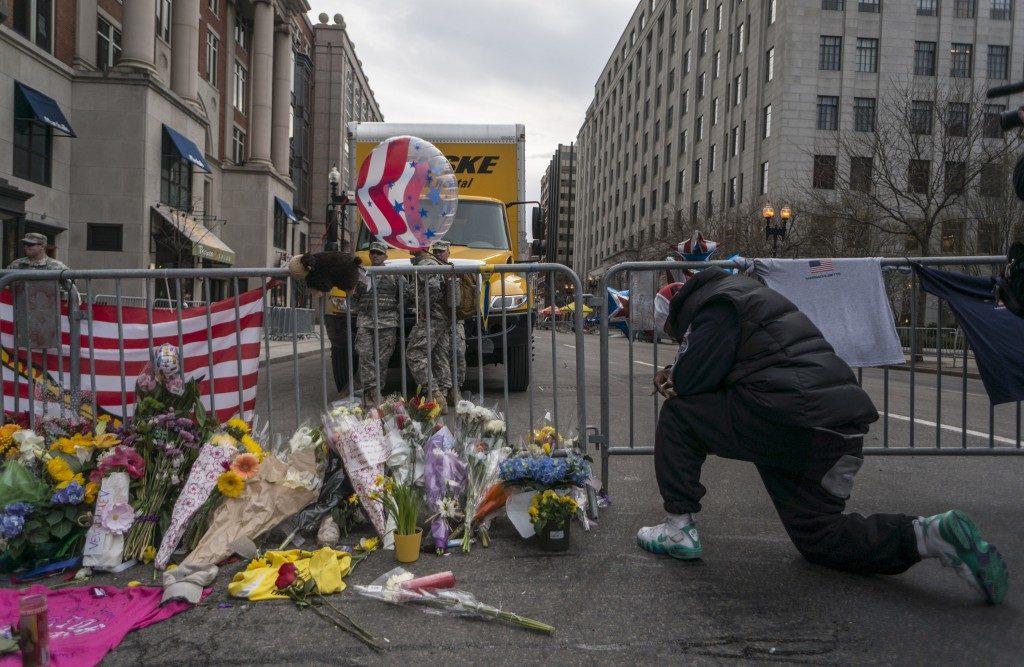By Dylan Lewis, News Staff
One year ago this week, Boston began to rebuild.
Even amidst a shaken feeling of security, a sense of community solidified. In the truest display of resilience, acts that were intended to instill fear had instead emboldened an overwhelming response, both locally and globally.
Whether you were a life-long resident, or an out-of-state college student, a resident of Allston, or Brooklyn, you identified as a Bostonian. Support ranged from symbolic acts by rival sports teams to jaw dropping financial assistance.
The Boston One Fund, formed by Governor Deval Patrick, and then-Mayor Thomas M. Menino, raised and distributed roughly $60 million in support to over 230 individuals affected by the bombing – all in just the two and a half months following the incident.
Against the backdrop of tragedy, seemingly little victories fueled the feeling that the city was strong enough to respond and rise above the incomprehensible acts.
When the the Boston Athletic Association opened registration for this year’s marathon in September, it upped the field size to 36,000 entrants, an increase of 33 percent from the 2013 to accommodate the surge in applications it received this year.
The hometown Red Sox went on a seemingly predestined postseason run, and returned the World Series Trophy to Boston, where it was paraded down Boylston Street and placed at the marathon’s finish line.
In perhaps the most uplifting story of them all, Jeff Bauman, the man photographers captured being wheeled away from the marathon site with his leg bone exposed, is expecting a child with his fiancée Erin Hurley.
For those that were personally affected, we could only hope these developments distracted them from the devastation.
It has been a slow and painful rehabilitation for many of the individuals impacted by the bombing. Some of the estimated 260-plus victims have to adjust to new prosthetics and endure incremental improvements in physical therapy sessions. Others grapple with skin grafts, shrapnel wounds, hearing loss, anxiety and symptoms of post-traumatic stress disorder.
Storefronts on Boylston Street had to be rebuilt, and people haven’t walked city streets with the same carefree air.
The families and friends of Boston University graduate student Lingzi Lu, Massachusetts Institute of Technology Police Officer Sean Collier, 6-year-old Martin Richard and Arlington resident Krystle Campbell were left with voids that no acts could reconcile.
While the sidewalks on Boylston have long been cleaned of their stains and a new stage will be set at the finish line this Patriots’ Day, the recovery effort is far from over for many of the affected.
The trauma sustained from the events has had a lasting physical, emotional and financial impact on the victims, and many are still in need of support. This Monday, in addition to lining the streets of the city to cheer on runners, I urge you to consider the people that stood in your spot last year.
There are a variety of ways you can provide assistance, even on a student budget.
-
The One Fund accepts donations of all denominations through their website onefundboston.org.
-
“Bracelets for Boston” – is a crowdrise.com initiative benefitting The One Fund and funded by John Hancock. They are asking for a $5 donation, and in return individuals receive bracelets made using recycled street banners from last year’s marathon.
- During this year’s marathon, John Hancock will donate $1 for every tweet containing the hashtag #WeRunTogether.
Photo by Matt Greene.








